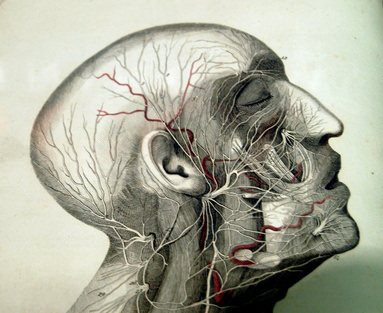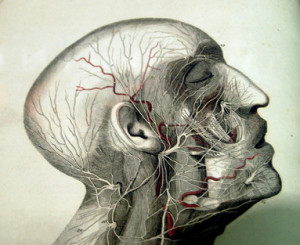
Steve Gorelick is Professor in the Department of Film and Media Studies at Hunter College of the City University of New York.
Some of the most fundamental and taken for granted cultural assumptions are the hardest to question. Why? Because “they” said they are true.
These are the assumptions that my Mom and Grandma used to always attribute to “they,” the mystical font of all wisdom and patron saint of unsubstantiated claims. “They” knew what caused colds, what foods were good for you, and seemed to have genuine insider knowledge about why it was important to wait a half hour after eating before swimming. I remember being a happy yet stubborn 9 year-old, arguing some point with my grandma, and instantly holding up the white flag when she was able to cite some evidence that “they” had reported. It simply didn’t matter that the information provided by “they” came from everything from supermarket tabloids to long-departed relatives. “They” knew what “they” was talking about!
“They” was on my mind today.
Within only several years, the problem of sports-related concussions and head trauma has become a topic of wide discussion and concern. Today on NPR’s Fresh Air, former All-Ivy league lineman, pro wrestler, Harvard graduate, and head trauma activist Chris Nowitski discussed his crusade to raise awareness about the potentially lifelong and debilitating effect of repeated head trauma. His foundation, The Sports Legacy Institute, focuses on the study of the degenerative brain disease Chronic Traumatic Encephalopathy, or CTE, a condition caused by repetitive concussive and sub-concussive brain injuries.
Listening to the interview reminded me of two things: First, I recalled that my freshman year of high school was marked by a painful and angry argument between my Mom and me about whether I could play football. I wanted to play. I lost. She was probably right.
But my other thought today was the absolutely ridiculous and even humorous way that head trauma is depicted in popular culture. People are knocked unconscious in staged fights and immediately regain consciousness. Cowboys and cops and criminals are constantly being punched, dropping to the ground, and quickly waking up with little effect. In fact, in physical humor and slapstick, the very act of being knocked unconscious is presented as the zenith of hilarity.
In “they-land,” the Three Stooges can smack and poke and punch each other’s head endlessly, and the laughter only gets louder.
http://www.youtube.com/watch?v=PNjzZ7Bt-Vo
It’s not that 1) some of this isn’t genuinely funny or 2) that it is something requiring censorship. I will, though, suggest that one result of all this consequence-free theatrical punching and poking is that the long-term consequences of sudden head trauma have largely been buried under all the comedy and action-packed scenes in film and television. The conventions and constraints of popular entertainment simply leave no room for the variety of short and long term symptoms of real-world concussions.
When is the last time you watched a crime drama, saw a bad guy get knocked out, and then watched him wake up with any of the actual symptoms of a serious concussion – vomiting, memory loss, a seizure, vision problems, etc? Never. Because “they” knows that all these complications would simply clog up and slow down a good police procedural.
My point is simple: the facts about the effects of repeated head trauma from football and boxing are slowly emerging in a number of longitudinal studies and post-mortem examinations of suspect brain tissue. Articles, studies, and commissions will tease out the medical nuance and – perhaps – effective treatment and prevention measures will emerge.
What a shame, though, that – while this work goes on – our culture will continue to get its kicks from popular entertainment – nonsense like professional wrestling, for example — that will depict the good old fashioned “bop on the head” as part of a grand tradition of performance rather than something potentially deadly and debilitating.
“They” should know better.









barbaraglickstein / January 24, 2011
Today’s NY Times has an article discussing brain injury recovery that also addresses the reality of brain healing from trauma http://nyti.ms/hOHo5a
/